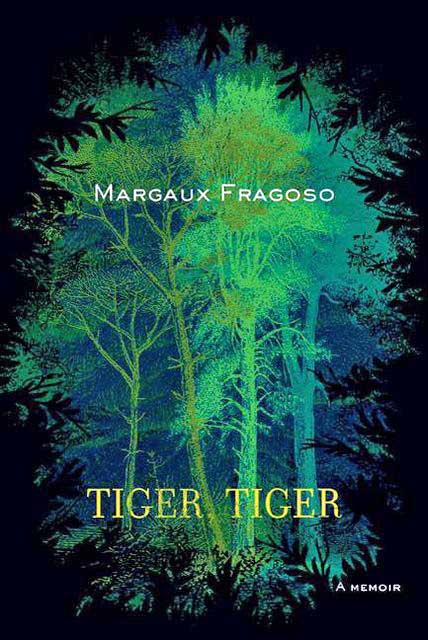
“Tiger, Tiger: A Memoir” -Margaux Fragoso (2011)
Books about topics like sexual abuse are never easy to write, and in the case of “Tiger, Tiger,” I applaud Fragoso for writing about her experiences in an honest yet tactful way. She shares exactly what happens and how it makes her feel, but she never glorifies pedophilia, even in spite of her own confusion.
As for the book itself, although I read it in a couple days, I still struggled with it majorly. The plot and the storytelling moved along just fine, but there were certain aspects that made reading unbearable. For example, whenever Margaux’s father would go on a rant about something, he would talk and talk, and I didn’t find all that he said to be beneficial to informing the reader or advancing the plot. Maybe that was on purpose, but for me, I just ended up skimming through his page-long soliloquies. Also, the fact that he never used contractions was just an annoying writing device. It took away from any kind of authenticity his character might have had for me. The long dialogues in general felt unauthentic, namely because I know that 7-year-old can’t remember these conversations exactly, and that seemed to be where the author was projecting or assuming a lot.
Another issue I had was with Margaux’s own dueling emotions. As she got older, I felt like she started to understand things in a different way, but it was never clearly documented. I understand the emotions she was experiencing were complex, but I think she could have touched upon them with more clarity. While this is a coming-of-age story in a sense, there was no real coming of age, in that I didn’t see the character of Margaux develop or mature much, even as she attempted to make sense of what happened to her. Again, perhaps that is the point, because she missed out on many crucial stages of her transition between childhood and adulthood, but it still felt to be lacking the self-analysis I would have liked to see, the kind that was naive at 7 but coming to terms much more at 15, 16, etc.
Tied into this is how she and Peter stopped having a sexual relationship toward the end, and all of a sudden she was dating Anthony, living with him, and everything was OK. That part felt incredibly underexplored and inauthentic, simply because I don’t believe that Margaux could go from what she had with Peter (sex, violence, etc.) to functioning in a “normal” relationship. She doesn’t seem to go into that in any kind of real depth, which had the affect of turning Margaux into a non-complex and unbelievable person toward the end – one that wasn’t being real with herself or the readers. No, it’s not a book about her relationship with Anthony, but it is about what happened to her, and I would have liked to have seen how she was able to transition from an entire life of unhealthy influences (alcoholic father, depressed mother, pedophile boyfriend) to suddenly just being normal.
All in all, I think this book is an account that has the potential to be very helpful for researchers, those who are abused, and more. However, on a level of writing, I wish it had explained more crucial parts instead of assuming them away. I want to read books that showcase some kind of growth, and in this book, we don’t see Margaux’s growth, either intellectual or sexual. With memoirs, you hope to see the “point” – that the person isn’t just writing to get something out, but also to show what he or she has overcome. But I am not so certain that came across here.
Began: July 21, 2013
Ended: July 23, 2013
Edition: Kindle